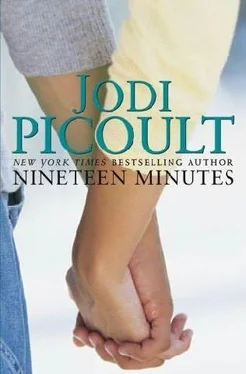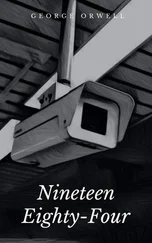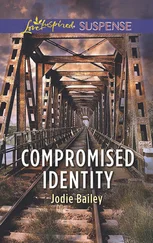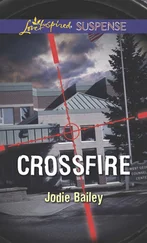start by digging two graves:
one for your enemy, and one for yourself.
-CHINESE PROVERB
Sterling isn’t the inner city. You don’t find crack dealers on Main Street, or households below the poverty level. The crime rate is virtually nonexistent.
That’s why people are still so shell-shocked.
They ask, How could this happen here?
Well. How could it not happen here?
All it takes is a troubled kid with access to guns.
You don’t have to go to an inner city to find someone who meets those criteria. You only have to open your eyes. The next likely candidate might be upstairs, or sprawled in front of your TV right now. But hey, you just go right on pretending it won’t happen here. Tell yourself that you’re immune because of where you live or who you are.
It’s easier that way, isn’t it?
Five Months After
You can tell a lot about people by their habits. For example, Jordan had come across potential jurors who religiously took their cups of coffee to their computers and read the entire New York Times online. There were others whose welcome screen on AOL didn’t even include news updates, because they found it too depressing. There were rural people who owned televisions but only got a grainy public broadcasting station because they couldn’t afford the money it would take to bring cable lines up their dirt road; and there were others who had bought elaborate satellite systems so that they could catch Japanese soaps or Sister Mary Margaret’s Prayer Hour at three in the morning. There were those who watched CNN, and those who watched FOX News.
It was the sixth hour of individual voir dire, the process by which the jury for Peter’s trial would be selected. This involved long days in the courtroom with Diana Leven and Judge Wagner, as the pool of jurors dribbled one by one into the witness seat to be asked a variety of questions by the defense and the prosecution. The goal was to find twelve folks, plus an alternate, who weren’t personally affected by the shooting; a jury that could commit to a long trial if necessary, instead of worrying about their home business or who was taking care of their toddlers. A group of people who had not been living and breathing the news about this trial for the past five months-or, as Jordan was affectionately starting to think of them: the blessed few that had been living under a rock.
It was August, and for the past week the temperatures had climbed to nearly a hundred degrees during the day. To make matters worse, the air-conditioning in the courtroom was on the fritz, and Judge Wagner smelled like mothballs and feet when he sweated.
Jordan had already taken off his jacket and loosened the top button of his shirt beneath his tie. Even Diana-who he secretly believed had to be some kind of Stepford robot-had twisted her hair up and jammed a pencil into the bun to secure it. “What are we up to?” Judge Wagner asked.
“Juror number six million seven hundred and thirty thousand,” Jordan murmured.
“Juror number eighty-eight,” the clerk announced.
It was a man this time, wearing khaki pants and a short-sleeved shirt. He had thinning hair, boat shoes, and a wedding band. Jordan noted all of this on his pad.
Diana stood up and introduced herself, then began asking her litany of questions. The answers would determine if a potential juror could be dismissed for cause-if they had a kid, for example, who’d been killed at Sterling High and couldn’t be impartial. If not, Diana could choose to use one of her peremptory strikes. Both she and Jordan had fifteen opportunities to dismiss a potential juror out of gut instinct. So far, Diana had used one of hers against a short, bald, quiet software developer. Jordan had dismissed a former Navy SEAL.
“What do you do for work, Mr. Alstrop?” Diana asked.
“I’m an architect.”
“You’re married?”
“For twenty years, this October.”
“Do you have any children?”
“Two, a fourteen-year-old boy and a nineteen-year-old girl.”
“Do they go to public high school?”
“Well, my son does. My daughter’s in college. Princeton,” he said proudly.
“Do you know anything about this case?”
Saying he did, Jordan knew, wouldn’t exclude him. It was what he believed or didn’t believe, in spite of what the media had said.
“Well, only what I read in the papers,” Alstrop said, and Jordan closed his eyes.
“Do you read a certain newspaper daily?”
“I used to get the Union Leader,” he said, “but the editorials drove me crazy. I try to read the main section of The New York Times now, at least.”
Jordan considered this. The Union Leader was a notoriously conservative paper, The New York Times a liberal one.
“What about television?” Diana asked. “Any shows you particularly like?”
You probably didn’t want a juror who watched ten hours of Court TV per day. You also didn’t want the guy who savored Pee-wee Herman marathons.
“60 Minutes,” Alstrop replied. “And The Simpsons.”
Now that, Jordan thought, was a normal guy. He got to his feet as Diana turned the questioning over to him. “What do you remember reading about this case?” he asked.
Alstrop shrugged. “There was a shooting at the high school and one of the students was charged.”
“Did you know any of the students?”
“No.”
“Do you know anyone who works at Sterling High?”
Alstrop shook his head. “No.”
“Have you talked to anyone involved in this case?”
“No.”
Jordan walked up to the witness stand. “There’s a rule in this state that says you can take a right on red, if you stop first at the red light. You familiar with it?”
“Sure,” Alstrop said.
“What if the judge told you that you can’t turn right on red-that you must stay stopped until the light goes green again, even if there’s a sign in front of you that specifically says RIGHT TURN ON RED. What would you do?”
Alstrop looked at Judge Wagner. “I guess I’d do what he said.”
Jordan smiled to himself. He didn’t give a damn about Alstrop’s driving habits-that setup and question was a way to weed out the people who couldn’t see past convention. There would be information in this trial that wasn’t necessarily intuitive, and he needed people on a jury who were open-minded enough to understand that rules weren’t always what you thought they were, who could listen to the new regulations and follow them accordingly.
When he finished his questioning, he and Diana walked toward the bench. “Is there any reason to dismiss this juror for cause?” Judge Wagner asked.
“No, Your Honor,” Diana said, and Jordan shook his head.
“So?”
Diana nodded. Jordan glanced at the man, still sitting on the witness stand. “This one works for me,” he said.
When Alex woke up, she pretended not to. Instead, she kept her eyes nearly closed so that she could stare at the man sprawled on the other side of her bed. This relationship-four months old now-was still a mystery to her, as much as the constellation of freckles on Patrick’s shoulders, the valley of his spine, the startling contrast of his black hair against a white sheet. It seemed that he had invaded her life by osmosis: she’d find his shirt mixed in with her laundry; she’d smell his shampoo on her pillowcase; she would pick up the phone, thinking to call him, and he’d already be on the line. Alex had been single for so long; she was practical, resolute, and set in her ways (oh, who was she kidding…those were all just euphemisms for what she really was: stubborn)-she would have guessed that this sudden attack on her privacy would be unnerving. Instead, though, she found herself feeling disoriented when Patrick wasn’t around, like the sailor who’s just landed after months at sea and who still feels the ocean rolling beneath him even when it isn’t there.
Читать дальше












